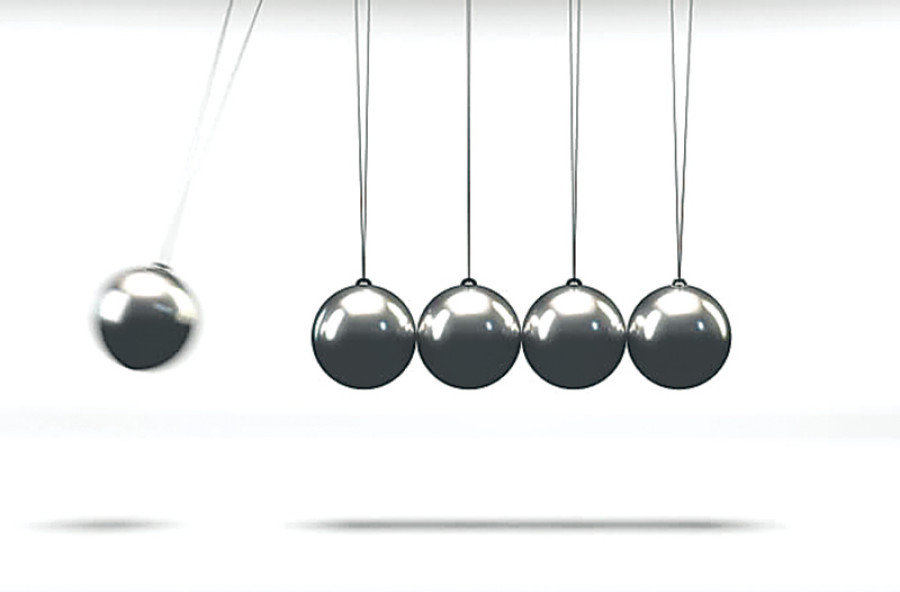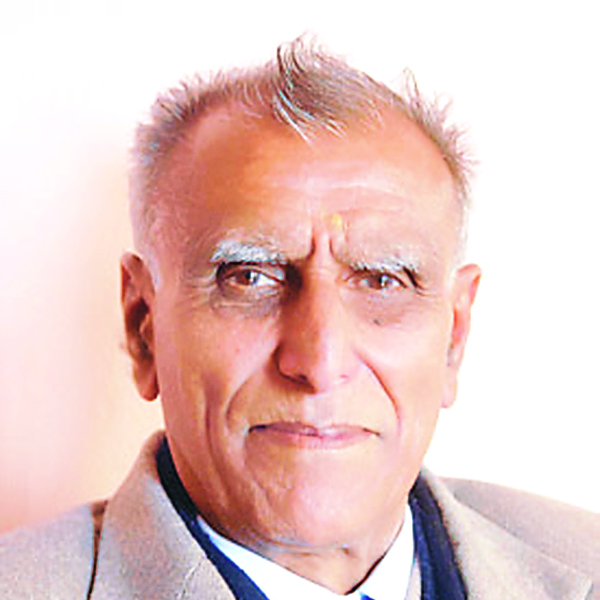Opinion
Don’t pass us by
It is important for the government to hold political consultations with the opposition
Ram Chandra Pokhrel
Following its rout in the recent local, provincial and federal elections, the Nepali Congress (NC) has been facing several challenges including internal issues that it never before experienced. Meanwhile, the left alliance consisting of the CPN-UML and the Maoist Centre has been put at the helm with an overwhelming majority in Parliament and the provincial and local assemblies. In an address to the nation from the shores of scenic Lake Rara, Prime Minister KP Oli outlined his vision of trans-Himalayan railways, waterway transportation and exploitation of natural resources to boost the rural economy.
Voters who have cast their ballots for the left alliance are earnestly waiting for the miracle of a full-fledged welfare state with effective service delivery and a better Loktantra than in the past. Likewise, people who voted for the NC had dreamed of a prosperous Nepal, good governance, social justice, and more importantly, rule of law. They also hoped for the successful implementation of the constitution. The spirit of inclusive and proportional representation and the distribution of the fruits of Loktantra as clearly stated in the first amendment to the constitution is another of their aspirations.
Changing scenario
The constitution has placed the opposition party in a very responsible position in Parliament and the provincial assemblies. The left alliance now leads the government while the NC sits on the opposition benches in Parliament and the provincial assemblies. The two are ideologically different in their political organisation. The left alliance claims that every solution can be found in Marxism and Leninism while the NC believes in democracy and that democratic values and ideals should guide the whole system.
Prior to the 2017 general election, the political scenario was very different from today’s politics. The leftists were always in a better position and could play power games in Parliament and the government through their substantial existence. The NC, though weak, had a central place in the House and was able to maintain its leadership role in government. Things changed drastically after the elections. The NC has now been destined to sit in the opposition while the left alliance holds the reins of government. Nepal’s destiny is now moving towards a new political dimension. Consequently, the NC has to chalk out a new role that is very different from the one it held in the past.
The NC should not forget how things began to change after the victory of the left alliance. While absorbing the shock of the defeat in the election, the then prime minister Sher Bahadur Deuba had already begun preparing to hand over power to the left alliance. Despite the NC’s commitment to the handover process, words of suspicion about the intention of the NC-led government filled the media. All conscious citizens were very much aware that there was a difference of opinion in the interpretation of the constitution between the NC and the left alliance. And this is likely to prevail throughout the process of implementation. While the left alliance viewed things from its Marxist-Leninist perspective, the NC laid emphasis on a principled stand for democratic values and ideals that have always been regarded as the core political property of the party.
Similarly, stability in a democratic country like Nepal does not merely mean continuity of the government of a majority party. It is more than that. Stability also means smooth functioning of all state organs and good governance within the clear framework of the constitution. A democratic interpretation of stability is something more than the status quo. What matters most is rule of law, freedom of press and a better index of human rights and social wellbeing.
Acting responsibly
Despite its own internal problems after the defeat in the elections and its shrinking number of seats in Parliament, the NC has greatly felt the need for an effective role as the most responsible opposition party in the country’s politics. But before that, the NC has to reinvigorate itself from within. Moreover, it has to identify problems at the grassroots and solve them first. Politics for change has remained a matter of great interest in Nepal for decades. The struggle against dictatorship through a mass movement became popular with increasing mass participation in the peaceful movements.
Moreover, the NC’s 70-year democratic struggle, particularly the 2006-07 peaceful mass movement, also drew the attention of the neighbours India and China and the rest of Asia. The two giant neighbours were interested in how Nepal could manage this struggle for democracy and were concerned about bringing stability to the Himalayan country. Nepal’s fragile geo-political location between the two Asian nuclear powers was also a matter of interest for the developed countries of the West: the US, the UK and the European Union.
Against this background, we can say that things are moving very fast in today’s politics. After Prime Minister KP Oli’s visit to India, Foreign Minister Gyawali visited China to make preparations for the prime minister’s visit. Meanwhile, the news that Indian Prime Minister Modi will be arriving in Nepal on May 11 has significantly added further momentum. Preparations are underway for such high level visits at the government level. However, the practice of holding political consultations with the opposition has not been seen. It is urgent for any democratic government to move with magnanimity, but the leadership of the ruling party seems to be quite indifferent to such an approach. The NC, which has a tradition of holding such mutual consultations, is closely watching all these developments and events.
Despite its own internal problems and the shock of the defeat, the NC has not forgotten its role as a responsible opposition. This party has always been ready to play its political role in the House on any important issue. As the nation has embarked on a federal system of governance, greater understanding and cooperation between the ruling party and the opposition has become imperative. At such a crucial moment in the implementation of the federal constitution, the tendency of the ruling party to ignore the opposition regarding important national issues and related international affairs may not be productive. It is needless to say that such actions can lead to adverse consequences that can harm the greater interest of the nation.
Pokhrel is a former Member of the Legislature Parliament from the Nepali Congress




 24.89°C Kathmandu
24.89°C Kathmandu











